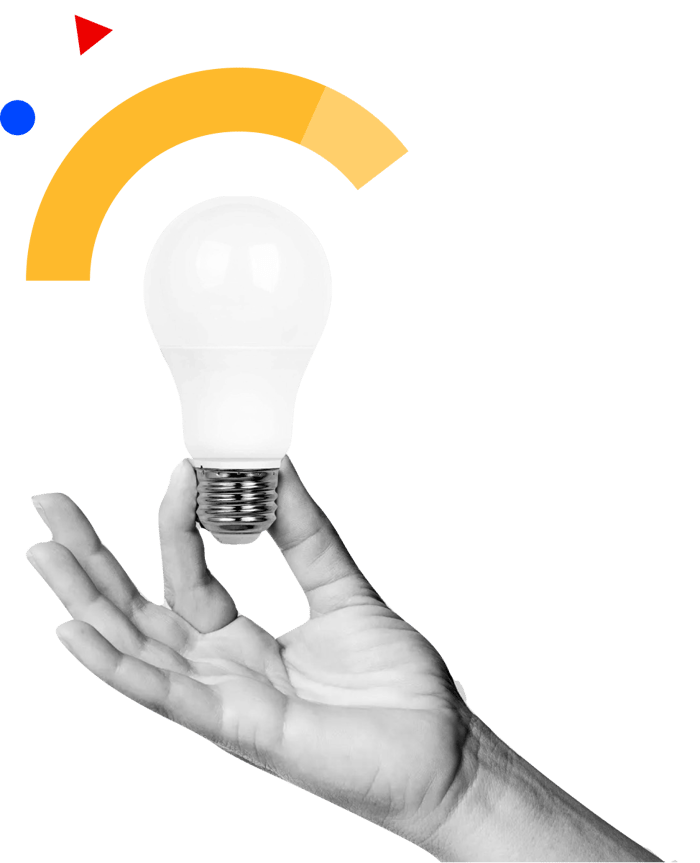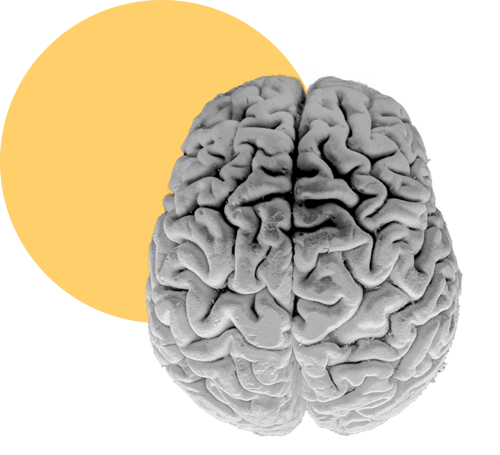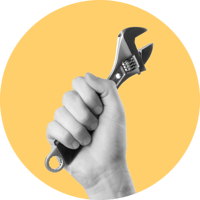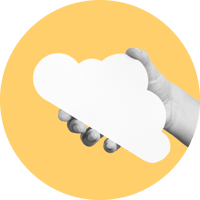The 2022 State of Organizational Knowledge
Closing the gap between information and knowledge
One of the most powerful assets for businesses is knowledge. But the complexity of modern business is making it increasingly difficult to develop, manage, use, and retain valuable knowledge that can propel organizations forward.

In our first annual State of Organizational Knowledge report, we set out to understand the current state of information and knowledge in today’s enterprises. In surveying 500 IT and business decision-makers from US organizations, we found many are suffering from a significant knowledge gap — one that’s costing them time and money, exposing them to risk, and restricting their ability to grow, innovate, and stay competitive.
This page shares some of our top-line findings, but you can download the full report for complete insights.

Knowledge is based on information and data; it’s the various facts, figures, and context about something, which come together to inform how we make decisions, solve problems, and take action. But this is precisely the problem. Businesses today are completely overwhelmed by their data, and it's hurting their capacity for knowledge.
Structured data is one thing, but as organizations become more distributed, rolling out more collaboration, communication, and content apps to get things done, the exponential growth of unstructured data from these proliferating solutions is only making the problem worse.
The report findings reveal the challenge for these organizations is two-fold: not only is it getting harder to find and manage data from their workplace apps, but it’s also getting harder to then turn all that data into useful knowledge that can power their business.
Information from workplace apps is growing ...

86%
86% of respondents said from pre-pandemic to present day, the number of apps in use at their organization has increased.

87%
87% of respondents said the amount of information generated from workplace apps has increased as well.
… making information discovery a widespread challenge:
98%

98% of respondents say their organization is currently experiencing challenges with finding information from workplace apps.
58%

58% admit they are not always able to quickly find specific information they need for a particular task to carry out their role.
95%

95% of decision makers experience some degree of difficulty when it comes to finding the right piece of information, at the right time, to make decisions with certainty.
These challenges with finding information not only affect day-to-day productivity…
81%
81% of respondents agree that time-consuming searches for relevant information are creating a productivity deficit throughout their organization.
78%
78% agree their organization could begin to lose large sums of money due to difficulties with finding and accessing information from workplace applications.

On a typical day, respondents spend 28 minutes trying to locate relevant information from workplace apps to carry out their role. That’s equivalent to nearly 2.5 hours per week, equating to more than an entire day each month for each employee simply trying to locate relevant information.
…they also affect organizations’ ability to make decisions. Many are operating on a jigsaw of incomplete information, creating over-reliance on guesswork.
46%
When accessing information from workplace applications, 46% lack certainty that they have all the information they need to make the best decision.
87%
87% say they’re making decisions using best guesses or hunches alongside the information they have.
51%
51% of IT decision makers say the majority of decisions are made using best guesses or hunches.
While many organizations are taking steps to resolve their information discovery challenges — including implementing technology solutions — those solutions often fall short of expectations.

Cloud storage services are the tool that respondents are most likely (68%) to report being in use within their organization to find information, while 50% use built-in search functions within workplace applications and 49% are using knowledge management technology.

But high proportions of respondents — around 70% and higher — believe significant or much improvement is needed across all the tools they use when it comes to accessing, managing, and storing information. Among the highest reported figures were for the most commonly used tool (cloud storage services).
As we continue to adapt to a progressively digital-first world, improving our ability to discover, manage, and retain knowledge will be more critical than ever. And if knowledge is based on information and data, then that’s where a resolution needs to start. Getting control over the deluge of enterprise data — particularly unstructured data — is the first step to closing the knowledge gap.
